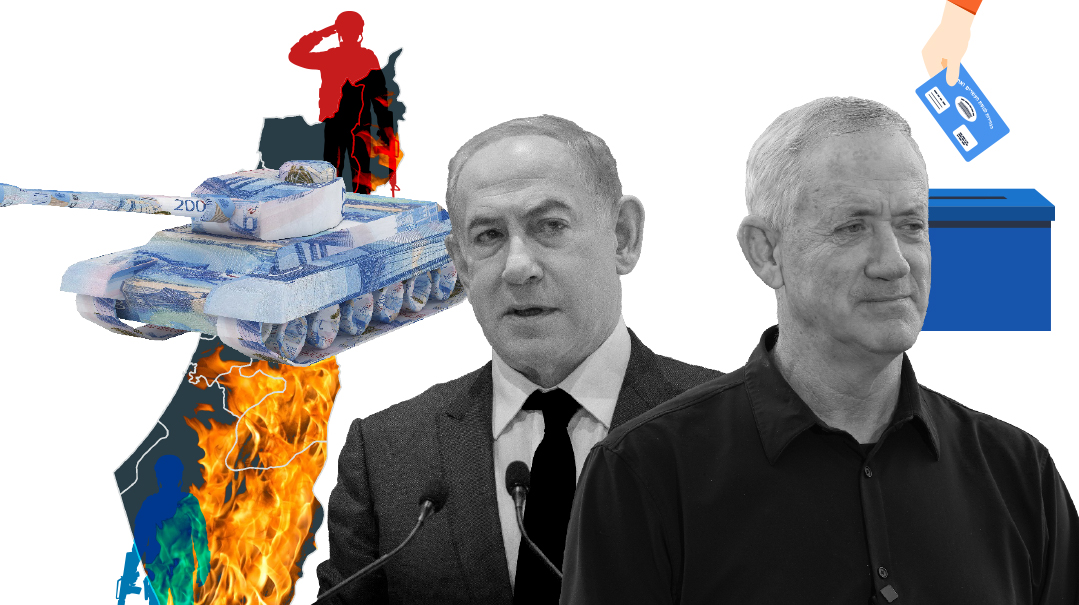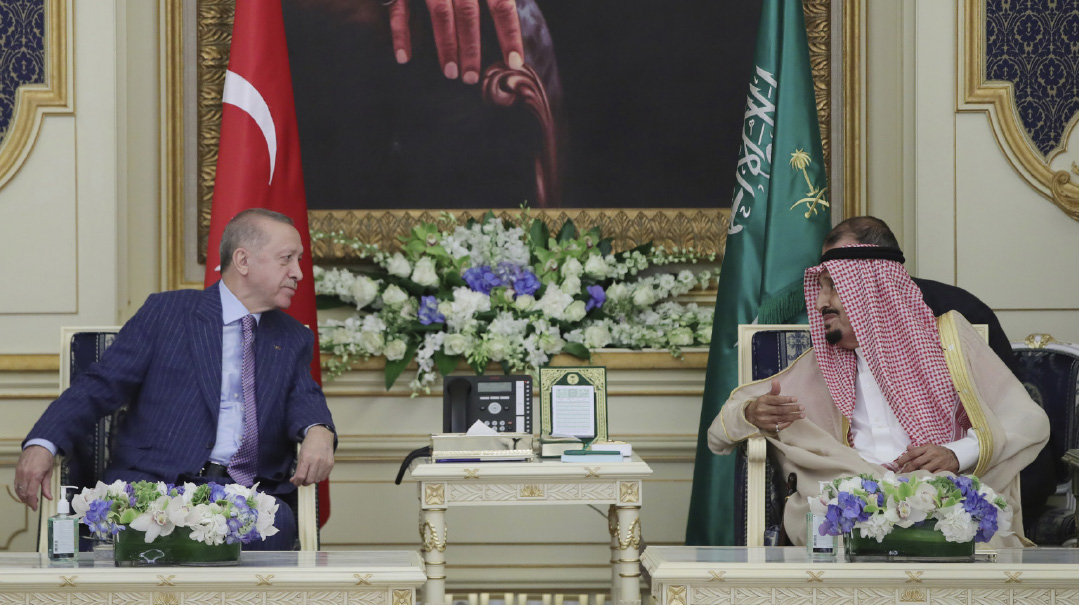Forecast 2024: Israel — Country at War

Mishpacha’s experts predict the year ahead

ON Erev Rosh Hashanah 5784, predictions in Israel for the coming year ranged from a Netanyahu plea deal to a Biden-mediated peace agreement with Saudi Arabia. At the beginning of the secular new year three months later, all those forecasts can be discarded, along with the intelligence assessments of the Military Intelligence Directorate, the Shin Bet, and the Mossad.
One thing can be said with certainty: The Israel we knew in 2023 and the Israel of 2024 will look like two completely different countries. The legal reform that consumed the country for nearly a year has disappeared, with the extremes on both sides retroactively accusing each other of weakening Israeli society and opening the gates to Hamas’s murderous onslaught.
The big question of what Israel will look like isn’t just about politics. First and foremost, it concerns the foundations of a society that is changing its face. Even now, as the fighting continues, the Israeli public can be divided into three blocs. The first, the extreme right, blames the left for the collapse of Israel’s deterrence, and is setting unachievable goals like the rebuilding of Jewish settlements in Gaza.
On the other hand, many former members of the protest movement on the left, some of whom have become spokespeople for the families of the abductees, cynically accuse the government and its supporters of being responsible for the horrific Simchas Torah massacre.
But in between — and this might be the only bright spot in the darkness enveloping Israel — there’s a huge demographic that has had it with the polarizing and hate-filled discourse. Some of my friends and relatives serving in Gaza told me how they felt after being cut off from the Israeli media for three weeks of fighting.
One of them, Yirmi A., a company commander in the Givati reconnaissance battalion, perfectly encapsulated the mood among the growing Israeli center. “In the Gaza Strip and on the Lebanese border, we serve together — hundreds of thousands of reservists, from all walks of life. Kibbutzniks alongside settlers, religious alongside secular. We fight, eat, sleep, and do everything together. We literally entrust our lives to each other. Our discussions have been unifying and connecting. When we come home after the war, we won’t let our leaders continue dividing us.”
On the war front, Israel can’t back down from its goal of eliminating Hamas, but it won’t be able to continue the high-intensity campaign either, for two big reasons. The first is American pressure — ahead of Biden’s reelection campaign — to reduce the intensity of the combat. The second is the unprecedented scope of the reserve forces serving in the Gaza Strip, with all that means for the economy.
The working assumption is that by the first quarter of 2024, we’ll see the IDF reducing its operations in Gaza to the Judea and Samaria template; keeping a finger on the pulse and making targeted raids, but without maintaining the massive ground presence we saw in the first two months of the fighting.
From South to North: as 2024 looms, all eyes are on the Israeli-Lebanese border. Prime Minister Netanyahu, previously sitting on the fence, now backs former defense minister Gantz’s position of not allowing the return of Israeli residents to northern cities before Hezbollah is removed from the border. The combined American-French initiative to reach a political agreement that would avert war is Israelis’ last hope that 2024 won’t end as it began —in a state of war.
All Change
Public opinion polls at the end of 2023 indicate clear but seemingly contradictory trends. On the one hand, the Israeli public is shifting to the right and no longer believes in diplomatic settlements to the conflict. On the other hand, the parties leading the polls are those that formed the Bennett-Lapid change government, which relied on the center-left and even the Islamist Ra’am Party.
The bottom line: Israeli politics will never be the same. Avigdor Lieberman, Gideon Saar, and Naftali Bennett are gravitating back to the right-wing camp they bolted from, in the belief that their return will be both natural and necessary the moment Netanyahu is out.
The figure already emerging as the next political phenomenon is former Mossad chief Yossi Cohen, who’s transformed from Netanyahu’s protégé to a harsh critic. Time will tell whether 2024 will be a tale of Bibi versus Yossi.
Money Troubles
The closing picture, which attests to the upheavals of the Israeli economy, came from the Prime Minister’s Office. Netanyahu, Finance Minister Bezalel Smotrich, and President Isaac Herzog attended the ceremony in Beit Hanasi extending the term of Bank of Israel governor Amir Yaron.
Governor Amir Yaron became one of the most prominent voices of the protest elite, when he spoke out against the reform and warned of its economic cost. The right targeted him for replacement, but at the start of 2024, Netanyahu and Smotrich have had to swallow the extension of his term.
“We have to significantly increase the defense budget, by at least NIS 20 billion a year,” Netanyahu said at the ceremony. But he refrained from elaborating on the heavy economic price that Israeli citizens will pay for the war.
Smotrich is denying reports of expected tax increases, but the deficit won’t cover itself, and Israelis are already tightening their belts ahead of a shaky start to fiscal year 2024.
Bibi vs. Benny
Israel’s prime minister in 2024 will likely be named Binyamin. Will it be Binyamin Netanyahu or Binyamin Gantz? To judge by the polls and the popular mood, Netanyahu’s luck is up.
According to public opinion polls, Benny Gantz’s Blue and White Party would surge from just 12 seats to a whopping 38 if elections were held now, while Netanyahu’s Likud would plummet from 32 to 18. But if we’ve learned anything from the past three decades, it’s that Netanyahu should never be eulogized.
Calls for his removal will crescendo the moment the defense minister, the chief of staff, the head of Military Intelligence, the head of Mossad, and the head of the Shin Bet turn in their resignations. This time, the mass protests will be led not by the leaders of the judicial reform protest but by the representatives of the families of the fallen and abducted.
Almost no one in the political establishment thinks Netanyahu will still be prime minister at this time next year. The lone believer is Netanyahu himself; he’s already launched his campaign to consolidate his right-wing and religious base. Bibi is touting himself as the only Israeli leader who can weather the storm and defy American pressure to install the Palestinian Authority in Gaza. Almost three decades later, the Oslo campaign of 1996 is knocking at the door.
(Originally featured in Mishpacha, Issue 992)
Oops! We could not locate your form.







